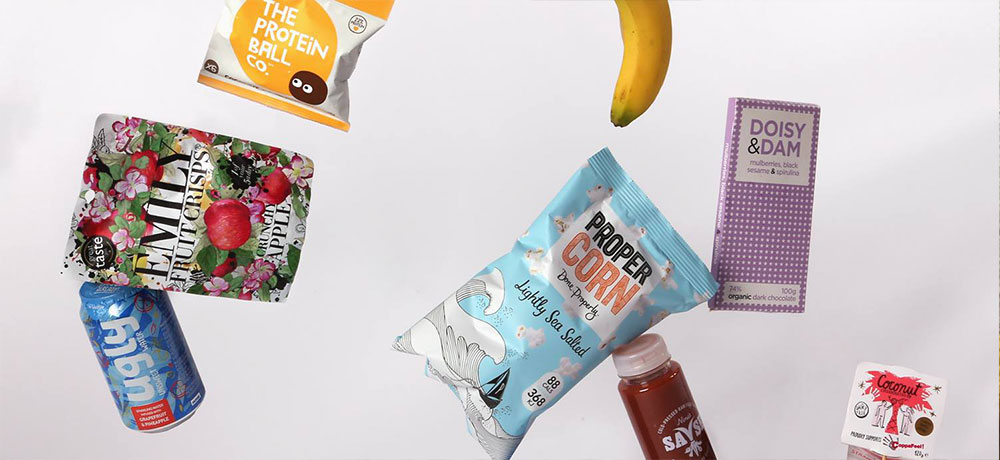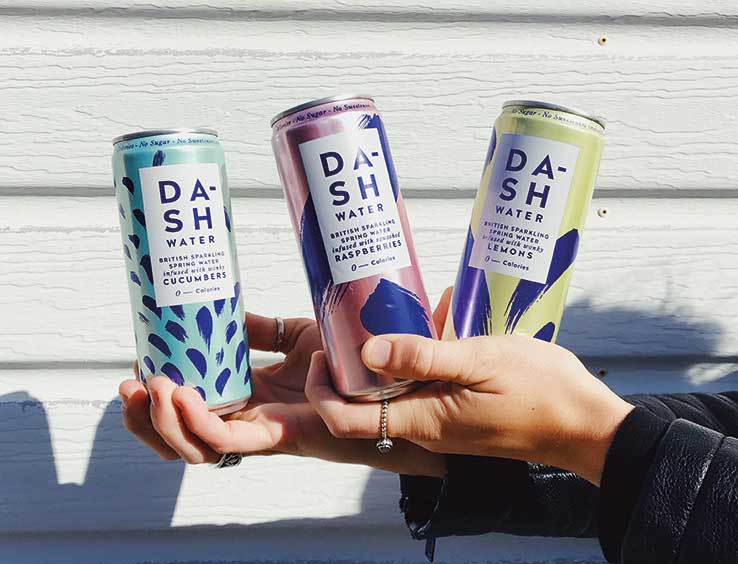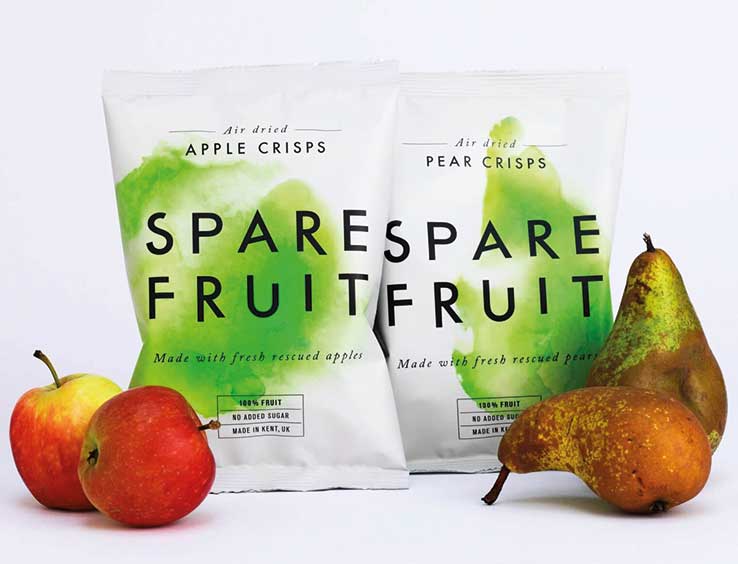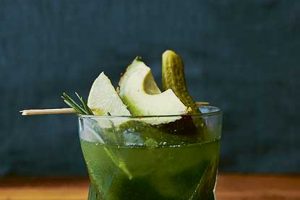A hunger for success – the UK’s flourishing food and drink start-ups
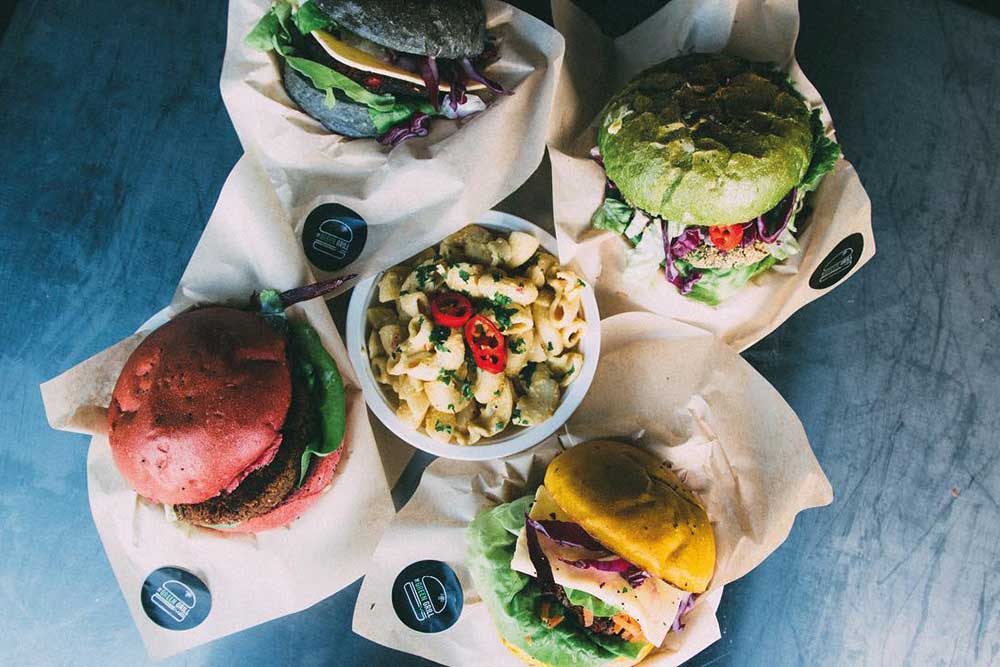
London has long been known for its food. From the traditions of pie & mash and jellied eels, to the incredibly vibrant and constantly-evolving restaurant scene, it’s a city full to bursting for the foodie. But the product side of the business – building brands and selling pre-packed goods – hasn’t enjoyed the same success.
Opportunities for food and beverage (F&B) start-ups across the country were traditionally curtailed by the giant fast-moving consumer goods (FMCG) conglomerates and their relationships with the equally giant supermarkets. However, buoyed by consumer hunger for brands that match their values, and the opportunities to reach those consumers without spending the earth, F&B is now awash with young, exciting start-ups – and London is ground zero.
Many F&B start-ups develop not because of a burning need to make money, but out of love for a product or diet and a desire to bring something better to the market. My own business, pork crackling brand Snaffling Pig, was no different. We knew nothing about the business of pubs or supermarkets when we started, but the excitement of having a tangible product we loved drove us to talk to anyone who would listen.
Passion tends to create some amazing start-up stories, with inspired founders travelling the world for research, spending countless hours in home kitchens and chasing down manufacturers to take a chance on a new business. Once they have a product, it’s about doing the hardest of yards: selling at markets and knocking on the doors of independents.
BREAKING WITH TRADITION
While it’s not easy, having that grass roots foodie ecosystem and the opportunities for real world feedback it presents, is one area where London excels. Olly Hiscocks, founder of Angel-based start-up, Olly’s Olives, feels it was a fundamental part of giving him the confidence in his business:
“After dowsing my parents’ kitchen with oil (the stains still exist in the wood today), I decided to test my olive concepts at Duck Pond Market in Richmond in 2016 and got an incredibly positive reaction. When we had returning customers demanding somewhere to buy them during the week, we knew it was time to look into retail.”
It’s not all about physical retail, though; London is an ideal launchpad for businesses that use technology to reach customers in different ways. Brands like Graze blazed the trail, and now there’s a wave of young businesses reaching specific consumers without the aid of traditional channels.
One example is AllPlants who, after soft launching in London, now deliver frozen meals nationwide. Owner Alex Petrides certainly felt being based in the nation’s creative heartbeat has helped AllPlants grow.
“London is home of food fashion in the UK. The latest superfoods, tastes and plant-based creations appear at street food markets and pop-up restaurants. At the same time, there’s a willingness to find new ways to lead healthier, more sustainable lives.”
THE YOUNG AND THE RESTLESS
It’s still an incredibly hard industry to break, and what’s been missing is the supporting infrastructure to turbocharge the community and propel ideas from kitchen tables to global successes. But now that’s also starting to change.
I remember the excitement of the rare times we got to chat to another foodie business in our first year, and how much we’d learn in the process, and it’s that sense of community the Young Foodies (YF) are driving.
A start up itself, YF was co-founded last year by the Theadora Alexander, alumni of another London success story, Propercorn. She recognised many smaller brands were held up on their journey through a lack of shared knowledge, and standardised approaches.
“We think it’s too hard to be a start-up in the food & drink world. Through the process of building the YF community, we’ve seen how much opportunity there is among the brands we’re working with. Communities and shared solutions like ours are the long overdue turning point to level the playing field. Suddenly, small doesn’t mean powerless.”
It’s an approach that appeals to retailers too, with buyers from Sainsbury’s playing an active role in recent events, providing access to key gatekeepers in a way that would have been almost impossible only a few years ago. Indeed, Sainsbury’s now have a ‘Future Brands’ team dedicated to shaking up the status quo. Fittingly, YF are based at perhaps the most ambitious food project in London: New Covent Garden’s The Food Exchange.
FOOD FOR THOUGHT
Once a bustling night time economy, supplying an estimated 40% of all fresh produce eaten out of homes, now it’s part of the complete redevelopment of the site to coincide with the Northern Line extension, developing the building to provide a home for F&B brands.
A mixture of office and retail space, perhaps most impressively an entire floor is dedicated to the Mission Kitchen co-working space, providing facilities for production and R&D – a vital ingredient to the start-up ecosystem.
Time will tell if The Food Exchange is successful in making Nine Elms become for food what ‘Silicon Roundabout’ is to tech, but the fact projects of this scale are happening is proof of the level of the changes underway.
It’s not all plain sailing though. Over half of food businesses fail within three years, and one main problem area is access to financial backing. However, food offers the kind of tangibility for investors that many other areas can’t match, and as more start-ups turn the tables on the big boys, the money should follow.
That’s a view shared by Young Foodies. “Not only is there more opportunity in the UK as competition heats up, but international grocery markets are looking to us as a source of innovation. We’re confident we’ll see more and more success in challenger brands, and we’re expecting more mergers and acquisitions of challenger brands by medium-sized, blue-chip competitors looking for a slice of the action.”
The sheer number of developments and successes based in the London area makes this feel like a very special time indeed. Watch out world – London’s young foodies are coming.



